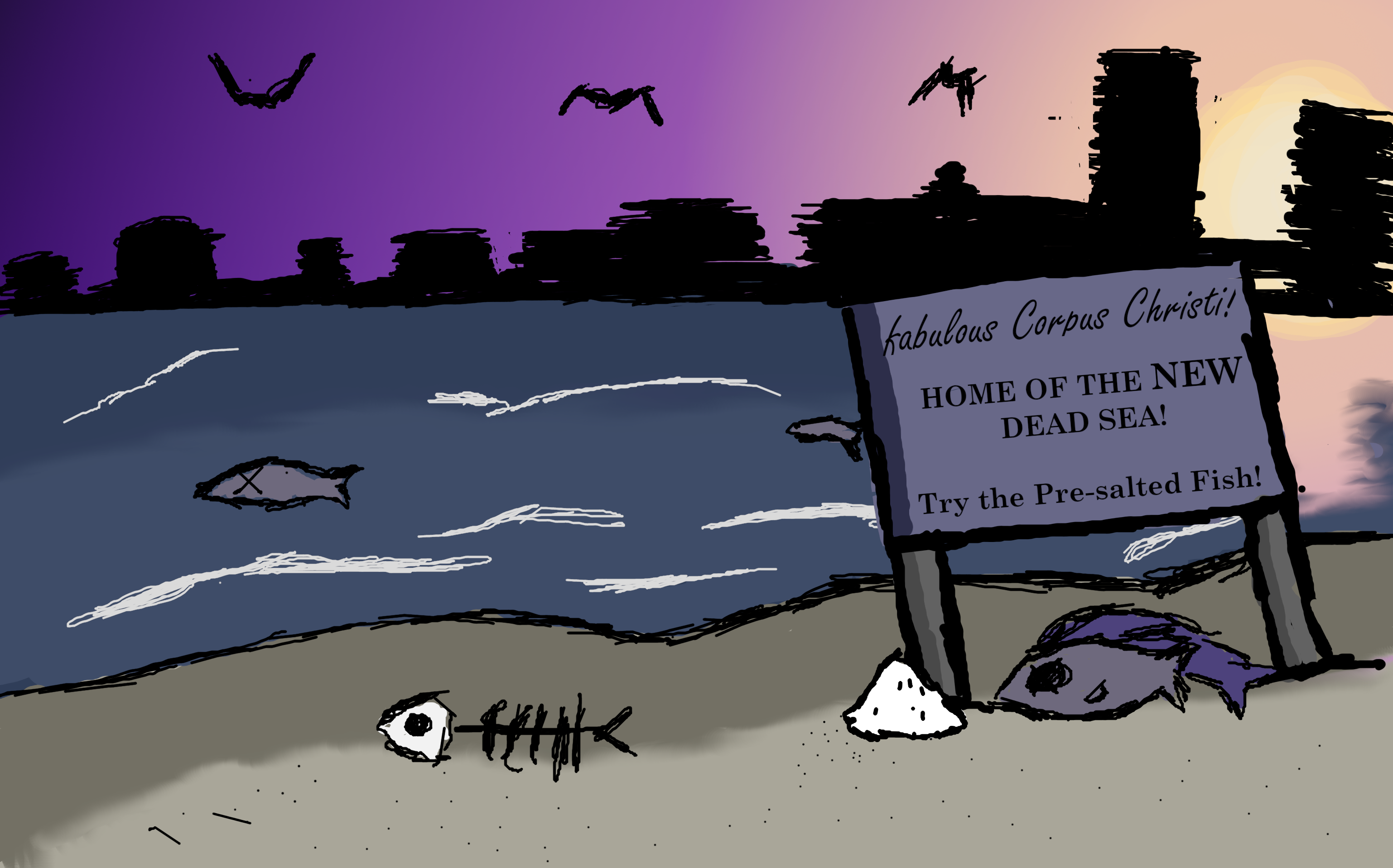Anyone who has lived in Corpus Christi for the past half decade is all too familiar with the city’s water problems.
If it is not some industrial spill or sanitizer shortage causing a citywide water boil, it is instead Texas’ famous weather engaging the city’s drought contingency plan. In fact, according to the National Drought Mitigation Center, Nueces County has not had a single twelve-month period without some level of abnormal dryness since April 2005.
As of March 14, most of Nueces County has been in a state of severe drought according to the NDMC, and Corpus Christi is once again under Stage 1 water restrictions. So as one can see, the city’s water problems have yet to be dealt with. Though, not for lack of trying. The city of Corpus Christi and other neighboring governments have been seeking out solutions for years now, and for the past five years, they have seemingly found one.
The solution has come in the form of desalination. “Desal,” as it has commonly been referred to, is the process of removing salt from sea water and converting it into fresh water through either distillation or reverse osmosis. It is not a perfect solution though.
The actual process is known for being incredibly expensive and energy intensive to maintain, but the primary concern shared by many members of the Coastal Bend community and local activists is that of the process’ main waste product: brine, and more specifically the city’s plans for disposing of that brine.
To avoid increasing costs on the city’s desalination projects, the current plans involve disposing of the brine directly into the Corpus Christi Ship Channel. These plans risk the healthy ecology of Corpus Christi Bay and can have severe economic and environmental consequences.
The city and Port of Corpus Christi need to listen to their people and their academic partners, and adjust their campaign to protect the health of the bay.
While the city has produced a singular study asserting that the current disposal plan would not affect the long-term salinity of Corpus Christi Bay, the University of Austin’s Marine Science Institute and Texas A&M University-Corpus Christi’s Harte Research Institute have contested the city’s study. Instead, they have asserted that the disposal of the brine in the bay would not only raise salinity in the long term, but it would also pose a severe risk to multiple species of fish and crustaceans that are key to the region’s fishing industry.
Many species of fish and crustaceans in the Gulf of Mexico use coastal bays like Corpus Christi Bay as a nursery for their eggs and larval offspring. This is because of the relatively still waters and the fresh water entering the bay from the Nueces River, which limits the salinity in the water. Dumping the brine would disrupt the already fragile balance, as well as introduce more pollutants into the water.
The Harte Research Institute suggested an alternative method that would avoid the risks of damaging the bay’s ecology: piping the brine waste out to the Gulf of Mexico and distributing it widely. The much more open, active waters of the gulf wouldn’t allow the brine to accumulate and harm the wildlife around the distribution points. Proponents of the current plan though have claimed that the HRI’s suggestions would be too expensive for the current plans, which are already behind schedule.
Yet the risks of not heeding the HRI’s and University of Texas’ studies and warnings could have costs that the city would be facing for decades. It is not only damaging the environmental qualities of the bay, but also threatening the economic viability of the bay. The fishing industry relies on the wildlife that are spawned in the bay, and the tourism industry is tied closely to the bay’s waters and wildlife.
Of course, there are other questions that we need good answers to, but this is a question that has a good answer already. It’s just a matter of getting our city and port officials to accept that answer.
The city is trying to fix a problem that exists, and one that the people want fixed. Everyone wants a reliable source of water. But the city is not listening to their experts, and they are taking risks with the bay — risks that the city does not need to be taking.






One thought on “Desalination takes salt from Corpus water”